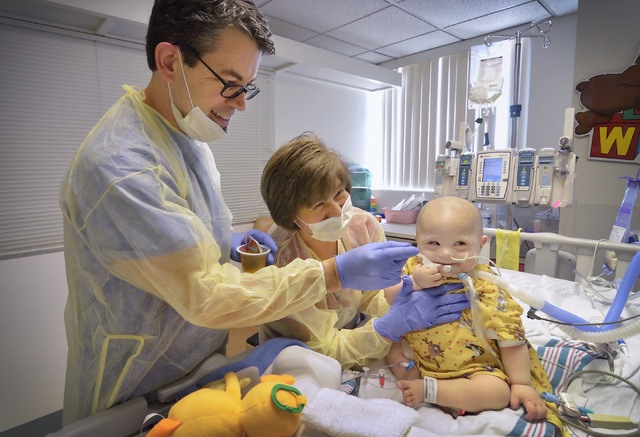Just How a Speech Pathologist Can Help Improve Interaction Abilities
Reliable communication is a foundation of individual and professional success, yet several people encounter obstacles that hinder their capability to reveal themselves plainly. A speech pathologist is furnished to deal with these barriers via targeted analysis and treatment methods tailored to each person's demands. By utilizing evidence-based healing strategies, they not only work to boost speech and language disorders however additionally boost total communicative competence. Understanding the multifaceted role of a speech pathologist exposes just how their knowledge can transform lives, welcoming a closer evaluation of the specific approaches and outcomes related to their technique.
Recognizing Interaction Problems
Comprehending interaction problems is necessary for identifying how they influence individuals' ability to reveal themselves and engage with others. Interaction problems incorporate a vast array of difficulties that impact speech, language, and social interaction, often hindering efficient communication. These problems can occur from different elements, including neurological problems, developing delays, physical problems, or mental problems.
Speech problems may manifest as troubles in articulation, fluency, or voice production, influencing how words are noticable or talked. Language disorders, on the various other hand, entail difficulties in understanding or utilizing language, which can restrain both spoken and non-verbal interaction. Social communication problems are defined by problems in the practical aspects of interaction, such as taking kip down conversation or understanding social cues.
The consequences of communication conditions are profound, impacting not just the person's ability to share thoughts and emotions yet additionally their social partnerships, instructional possibilities, and overall top quality of life. Understanding of these problems can foster compassion and assistance, urging effective methods for interaction and engagement. Understanding the complexities of interaction conditions is an important action towards advertising inclusivity and resolving the requirements of those impacted.
Function of a Speech Pathologist
Speech pathologists often play an essential role in dealing with and diagnosing communication problems, using a variety of evidence-based techniques tailored per individual's needs. These specialists deal with people across the lifespan, from children with speech delays to adults recovering from strokes or terrible brain injuries. Their know-how includes a range of interaction concerns, consisting of articulation, voice, language, and fluency conditions.
In therapeutic settings, speech pathologists make use of organized interventions designed to improve interaction skills. They might carry out techniques such as speech exercises, language games, and social communication training to promote renovations in receptive and expressive language capabilities. Speech Pathologist. Furthermore, they inform clients and their family members concerning reliable communication methods and flexible approaches to browse everyday interactions
Beyond straight treatment, speech pathologists collaborate with various other medical care caregivers, specialists, and teachers to ensure a comprehensive method to therapy. They support for clients by giving resources and support, enabling individuals to accomplish their communication objectives and improve their general lifestyle. As experts in the area, speech pathologists are necessary in cultivating efficient interaction, promoting freedom, and enhancing social participation for those with interaction challenges.
Assessment and Diagnosis Refine
The assessment and medical diagnosis procedure performed by speech pathologists generally involves a detailed examination to determine interaction disorders properly. This procedure begins with a thorough medical history, where the medical professional collects pertinent details regarding the person's clinical, educational, and developmental background. Comprehending the context of the individual's interaction troubles is necessary for a precise diagnosis.
Complying with the medical history, speech pathologists utilize standardized examinations and casual analyses to evaluate various aspects of interaction, consisting of speech noise home production, language understanding, meaningful language, and social communication skills. These assessments are tailored to the individual's age and particular problems, giving important information for evaluation.
Monitoring is likewise an essential part of the assessment procedure, as it permits the clinician to see direct how the individual communicates in all-natural settings. Furthermore, meetings with relative and instructors can offer understanding into the person's communication challenges across different atmospheres.
When the assessment is full, the speech pathologist synthesizes the findings to establish a diagnosis and advise proper treatments. This complete analysis process makes sure that people obtain targeted assistance tailored to their one-of-a-kind interaction demands, laying the foundation for reliable therapeutic strategies.
Restorative Techniques and Approaches
Countless healing methods and approaches are used by speech pathologists to address a variety of communication problems efficiently. One commonly made use of approach is expression treatment, which focuses on remedying speech sounds through repetition and aesthetic cues. This technique is particularly advantageous for people with speech audio problems.
Another efficient approach is language treatment, which improves both meaningful and responsive language skills. This may include interactive tasks that promote vocabulary development, syntax understanding, and conversational skills. Furthermore, speech pathologists commonly utilize social skills training to enhance practical language abilities, allowing people to browse social communications extra efficiently.
Fluency shaping and stuttering adjustment methods are especially designed to assist those experiencing fluency disorders. These approaches aid clients develop smoother speech patterns and take care of the physical and psychological elements of stuttering.
Moreover, augmentative and alternate communication (AAC) systems are used Get More Information for individuals with serious communication problems. These systems, which can consist of motions, signs, or electronic tools, offer vital support for efficient interaction.
Advantages of Speech Treatment

Furthermore, speech treatment can assist in creating essential listening and comprehension abilities, fostering better interaction in discussions. People with cognitive-communication conditions can also benefit, as therapy concentrates on strengthening memory and problem-solving abilities, crucial for efficient communication.
An additional essential facet is the psychological support offered during treatment sessions. Speech pathologists create a safe setting, encouraging clients to get over stress and anxiety and irritation relevant to their interaction problems. This support can bring about enhanced self-esteem and general mental health.
Moreover, very early intervention via speech therapy can prevent additional complications, guaranteeing that people reach their full communicative possibility. Generally, the benefits of speech treatment prolong beyond simple speech improvement, positively influencing various measurements of life for those influenced by interaction difficulties.
Final Thought
In recap, speech pathologists play an essential duty in addressing communication conditions via assessment, diagnosis, and customized healing treatments. By using evidence-based techniques, these experts boost people' speech and language capabilities, fostering enhanced quality, fluency, and social communication abilities. The benefits of early treatment emphasize the importance of seeking help from speech pathologists, as their proficiency can substantially boost communicative possibility, inevitably leading to greater success in both expert and individual rounds.

Speech pathologists often play an essential role in detecting and dealing with interaction problems, using a range of evidence-based methods customized to each person's demands. As experts in the field, speech pathologists are vital in cultivating reliable communication, promoting freedom, and enhancing social involvement for those with communication difficulties.
